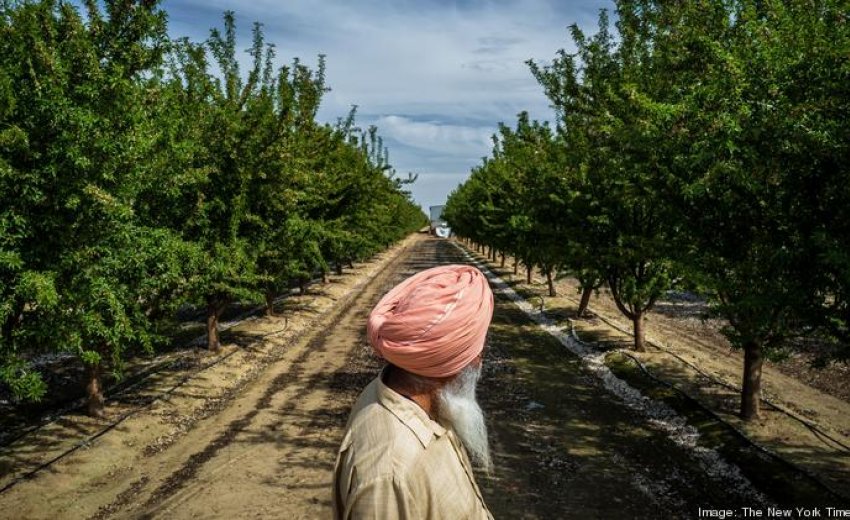Simranjit Singh is a 28-year-old farmer from California with a deep agricultural heritage spanning 900 years. His family's roots in farming date back to the civilizations of Northern India, long before India gained independence from Britain in 1947. Simranjit and his father work on their secluded 100-acre farm in the San Joaquin Valley, where they tend to their raisin and almond orchards, determined to keep their heritage alive.
Despite the changing times, Simranjit remains committed to farming, which he says is at the core of his identity. In the surrounding area, however, there are fewer Punjabi workers than there used to be in the 1980s and 1990s, as more young people pursue professional careers. According to Simon Sihota, another prominent Punjabi Sikh farmer in the region, Simranjit and his father are a rare example of the next generation choosing to carry on their family's agricultural legacy.
Farming; A Family Affair
Mr Sihota's business is a family affair, much like the Sran farm. He learned the ropes of farming from his father and grandfather and now works alongside his children. His son Arvin recently graduated from California Polytechnic State University with a degree in agricultural and environmental plant sciences, while his older son Kavin holds a degree from Cornell in enology - the science of winemaking. Jasleen, Mr Sihota's daughter, assists with administrative tasks for the family business.
Mr Sihota's father arrived in California from India in 1961 and purchased 40 acres of land. Over time, he saved enough money to expand the farm, which now spans 3,000 acres of land. The farm produces almonds, pistachios, wine grapes, and peaches. The Sihota family takes pride in working together, continuing a tradition that has been passed down through generations.
Kavin Sahota said, “I can’t see myself doing anything else. When I was out on the East Coast, I’d always miss the farming lifestyle.”
Even though young Sikh farmers like Kavin Sihota and Simranjit Singh are becoming increasingly rare in this region of the world, their classmates have discovered new methods to engage with the custom of Indian farming and their Sikh community more generally.
Agricultural Laws in India
Farmers in India have been protesting since September 2020 against new agricultural laws that they say will harm small farmers and reduce their income. The laws reduce the government's involvement in farming and remove state protections, which could leave farmers at the mercy of the free market.
Young American Sikhs have been showing their support on social media and at rallies in the United States. Anureet Kaur, a 16-year-old high school student from Selma, Calif., has been posting frequently about the protests on her Instagram account with almost 6,500 followers. Her account was temporarily restricted due to the frequency of her posts.
Sohan Samran, a farmer and owner of the Bapu Almond Company in Madera, has shown his support by shipping nearly 7,000 pounds of almonds directly to the protesters in India.
In Kerman, Simranjit Singh and Sarbjit Sran, who work on their family's homestead, relaxed in their home after a day's work. They pointed to a painting of an ancient Sikh gurdwara, emphasizing the principle of seva in the Sikh faith, which stresses the importance of kindness, humility, and service to others.
Growing crops, tending to the land, and providing food to their community are all acts of service for Mr Singh and his father, who think that their generational heritage of family farming is an active aspect of seva.
Mr Singh emphasised on the importance of seva, and how farming is an act of seva, saying “My work as a farmer is more than a job. I feel like it’s a duty, and I’m just trying to do as much seva as I can in the limited time I have here on this planet.”
*Based on an article published in New York Times on 26th September 2021
